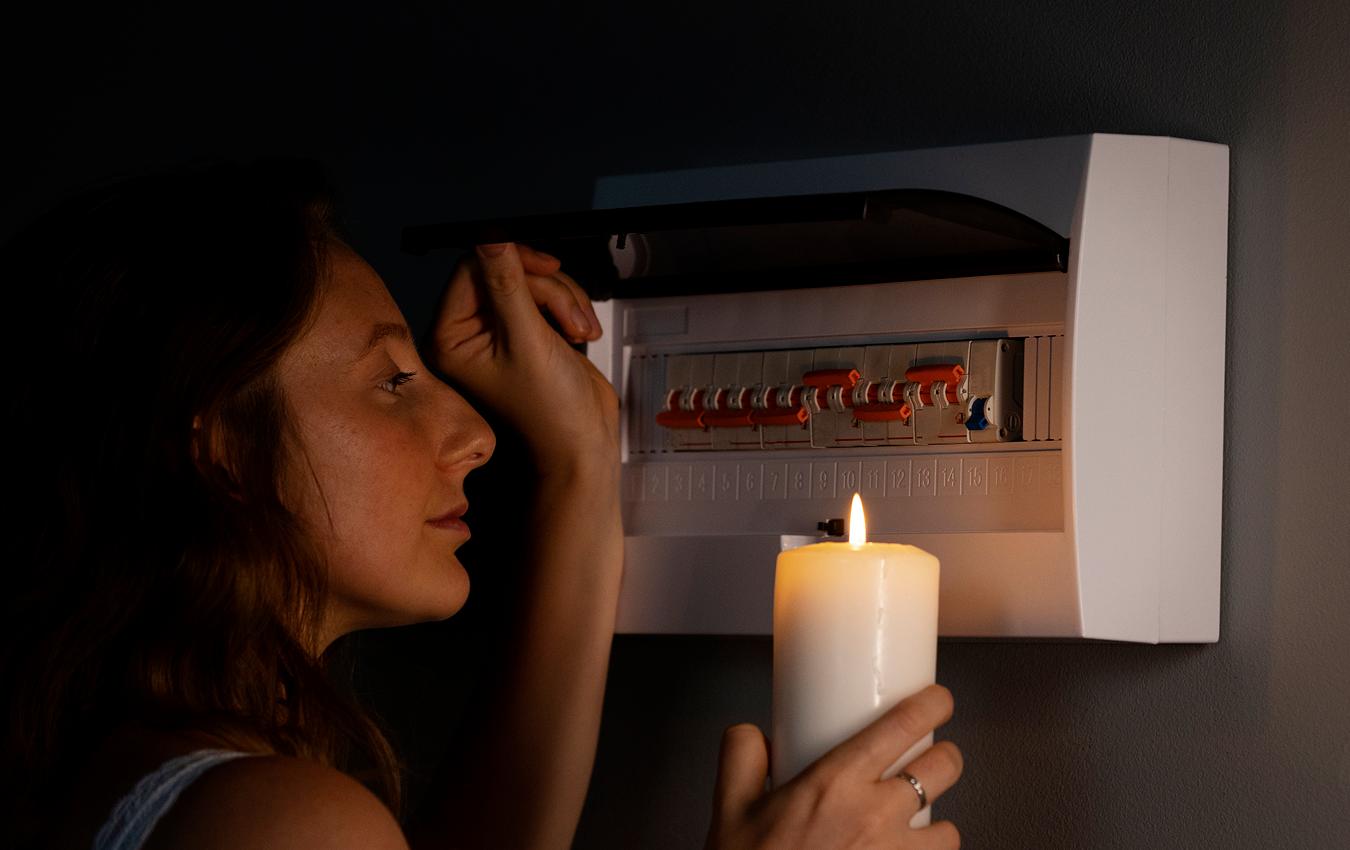Power outages can happen at any time, leaving you without electricity for hours or even days. That’s why having a reliable home backup power supply is essential for any household. But with so many options available, how do you choose the right one for your needs? Here are some key factors to consider when selecting a backup power supply for your home.
Determine Your Power Needs.
The first step in selecting the right home backup power supply is to determine your power needs. Consider what appliances and electronics you want to keep running during a power outage, and how much power they require. This will help you determine the size and capacity of the backup power supply you require. You can use an online power calculator or consult a professional electrician to help you determine your power needs.
Once you have determined your power requires, you can start looking at different types of backup power supplies. Some options include portable generators, standby generators and battery backup systems. Portable generators are a viable option if you only need to power a few appliances or electronics, while standby generators are better for powering your entire home. Battery backup systems are a suitable option if you want a more environmentally friendly and quiet backup power supply. Consider factors such as fuel type, noise level, and installation requirements when choosing the right backup power supply for your home.
Standby Generators Generac for Home Backup Power
Standby Generac home generators are a profitable investment in the comfort, safety, and autonomy of your residence. Generac generators are distinguished by high reliability, low fuel consumption and environmental friendliness. We have updated the range of generators for home use as a backup source of electricity in case of bad weather and power outages.
Our new range of standby Generac home generators offers even more advanced features and improved performance. With these generators, you can have peace of mind knowing that your home will always have a reliable source of power, regardless of any unforeseen circumstances. Whether it’s a storm or a blackout, Generac generators are designed to keep your lights on and essential appliances running smoothly.
Are you worried about the insecurity of your residence from a power outage?
A Generac generator is being installed by Premier Electrical Services as a backup power system. You can find out what kind of backup generator you require for your home by requesting a custom quote. Call 954-900-1696 for more information or to get a free quote.
Choose the Right Fuel Type.
Another important factor to consider when selecting a home backup power supply is the fuel type. The most common options are gasoline, propane, and diesel. Gasoline is widely available and easy to use, but it has a short shelf life and can be dangerous to store. Propane is a cleaner-burning fuel and has a longer shelf life, but it requires a separate tank and can be pricier. Diesel is the most efficient and longest-lasting fuel option, but it can also be pricier and requires regular maintenance. Consider your budget, storage options, and fuel availability when choosing the right fuel type for your backup power supply.
It is essential to consider the fuel type of the backup power supply. Portable generators often run on gasoline, while standby generators can be powered by natural gas or propane. Additionally, noise level should be considered, as portable generators tend to be louder compared to standby generators. Lastly, installation requirements should also be considered, as standby generators typically require professional installation and may need a dedicated space in your yard.
In addition to considering the fuel type, it’s also important to think about the size of the generator and how much power it can provide. A larger generator may be necessary for powering an entire home, while a smaller one may be sufficient for just essential appliances. It’s also influential to properly maintain and test your backup power supply to ensure it will work when you require it most. With the right fuel type and proper maintenance, a home backup power supply can provide peace of mind during power outages.
Consider Portability and Installation.
When choosing a home backup power supply, it’s significant to consider how portable and easy to install it is. If you live in an area prone to natural disasters, you may need to evacuate quickly and take your backup power supply with you. In this case, a portable generator may be the best option. However, if you plan to use your backup power supply as a permanent solution, you may want to consider a standby generator that can be installed directly into your home’s electrical system. Make sure to also consider the size and weight of the backup power supply, as well as any installation requirements, before making your final decision.
Portability and installation are two key factors to consider when selecting a home backup power supply. If you live in an area prone to natural disasters, such as hurricanes or wildfires, you may need to evacuate quickly and take your backup power supply with you. In this case, a portable generator may be the best option. Look for a generator that is lightweight and easy to move, with wheels and a handle for easy transport. On the other hand, if you plan to use your backup power supply as a permanent solution, you may want to consider a standby generator that can be installed directly into your home’s electrical system. This type of generator is more powerful and reliable than a portable generator, and can provide uninterrupted power to your home during an outage. However, standby generators require professional installation and may be pricier than portable generators. Make sure to also consider the size and weight of the backup power supply, as well as any installation requirements, before making your final decision.
Look for Safety Features.
Safety should be a top priority when choosing a home backup power supply. Look for features such as automatic shut-off in case of overload or low oil levels, as well as protection against electrical surges. It’s also important to follow all safety guidelines and instructions provided by the manufacturer when operating your backup power supply. Remember, improper use can lead to serious injury or even death.
When it comes to home backup power supplies, safety should always come first. Look for models that have built-in safety features such as automatic shut-off in case of overload or low oil levels. This will help prevent damage to your equipment and keep you and your family safe. Additionally, protection against electrical surges is also critical to prevent damage to your home’s electrical system. It’s influential to carefully read and follow all safety guidelines and instructions provided by the manufacturer when operating your backup power supply. Remember, improper use can lead to serious injury or even death. By choosing a backup power supply with safety features and following proper usage guidelines, you can ensure that your home stays powered during an outage without putting yourself or your loved ones at risk.
Compare Prices and Warranties.
When deciding on a home backup power supply, it’s important to compare prices and warranties from different manufacturers. Look for a model that fits your budget and offers a warranty that covers any potential defects or malfunctions. Keep in mind that a higher price doesn’t always mean better quality, so do your research and read reviews from other customers before making a final decision.
In addition to comparing prices and warranties, consider the type of fuel the backup power supply uses. Some models run on gasoline, while others use propane or natural gas. Each fuel type has its advantages and disadvantages, so choose the one that best fits your needs and budget. It’s also significant to consider the size and capacity of the backup power supply, as well as any additional features such as automatic start-up or remote monitoring. By doing your research and comparing options, you can find the best home backup power supply for your specific needs and budget.
Conclusion
The most important thing to keep in mind when picking a backup power supply will be your budget. While it’s nice to have peace of mind when a power outage strikes, you would rather not spend too much on a system that isn’t essential for your household just yet. To help figure out the right balance, think about what you’re likely to use your backup power supply for in the future (if anything). Then add up all the costs and see if you can afford what you require. Remember, too, that it’s entirely possible that you won’t necessarily need a constant power supply—that is, a unit is only necessary if your home loses electricity entirely. Just remember that efficiency, dependability, and power level are the most important factors to consider when deciding on a backup power supply. Consider a reliable yet affordable generator or inverter for the best combination of all three.
Consider having a Generac generator installed by Premier Electrical Services if you want a dependable power source for your home.
To find out more about how we can assist you, call us at 954-900-1696 or send us a message right away.
Check out the latest news:
- Commercial Energy Audit: Spotting the Sources of Energy Waste
- Protect Your Fort Lauderdale Home with Whole-House Surge Protection
- Power Outages in Fort Lauderdale: How to Protect Your Home
- Preparing for a Home Rewiring Project: A Checklist for Homeowners
- 5 Critical Signs You Need a Whole-House Surge Protector





